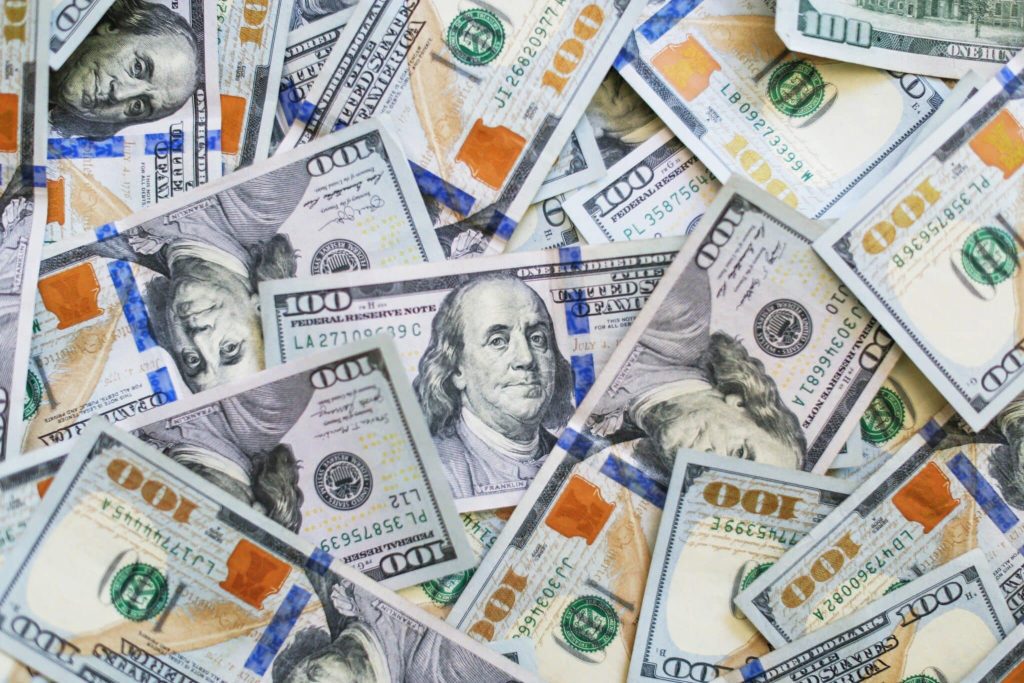The Nigerian naira experienced a sharp decline on April 4, 2025, slipping to N1,600 per U.S. dollar at the official exchange window. This latest downturn follows rising uncertainty in international markets, triggered by the sweeping tariffs reinstated by former U.S. President Donald Trump. It marks the weakest performance for the naira since early December 2024 and has raised alarms over the local currency’s near-term stability.
Naira Down Nearly 4% in First Week of April
Data from the Central Bank of Nigeria (CBN) revealed that the naira lost 1.9% of its value in a single day, weakening from N1,569/$1 on April 3 to N1,600/$1 at the close of trading on April 4. This drop represents a 3.9% decline in just four days, compared to its closing level of N1,537/$1 at the end of March.
This latest figure brings the currency to its lowest level in four months, approaching its December 2024 low of N1,608/$1.
Wide Fluctuations Reflect Market Tensions
Trading data from the official market revealed significant day-to-day volatility. The naira traded as high as N1,625/$1 at certain points—one of the steepest rates recorded this year—signaling rising concern among investors. Conversely, the day’s lowest exchange point was N1,519/$1, suggesting that some participants still anticipate possible stabilization or intervention from the CBN.
The Nigeria Foreign Exchange Market (NFEM) average rate closed at N1,567/$1, its weakest average so far in 2025 and a clear sign of ongoing market strain.
External Reserves See Major Boost
In a separate development, the CBN announced a considerable jump in Nigeria’s net external reserve position. By the end of 2024, reserves had climbed to $23.11 billion after accounting for liabilities—a significant increase and the highest level in over three years.
This rise represents a dramatic recovery from $3.99 billion at the close of 2023. By comparison, the reserve figure stood at $8.19 billion in 2022 and $14.59 billion in 2021. Analysts credited this improvement to tighter fiscal controls, foreign inflows, and debt restructuring efforts.
However, some financial experts caution that despite the uptick, Nigeria’s reserves remain susceptible to shocks. The country still relies heavily on short-term foreign investments and commodity exports, making its buffer vulnerable to external shifts.
Currency Forward Contracts in the Pipeline
To strengthen its foreign currency position further, the apex bank is reportedly preparing a new round of FX forward contracts. These instruments allow the government to pre-agree on future exchange rates with counterparties, easing pressure on the spot market.
Under the former CBN governor Godwin Emefiele, similar contracts were used extensively, though they were frequently criticized for being skewed against Nigeria’s interests. According to new reports, the upcoming contracts are expected to be more favorable, offering better terms for the country while improving liquidity in the foreign exchange system.
Trump’s Global Tariffs Send Shockwaves Through Markets
The recent depreciation of the naira cannot be separated from the broader global upheaval caused by renewed U.S. protectionist policies. Trump, in a move dubbed “Liberation Day,” imposed blanket tariffs on all trading partners, citing trade imbalances and a desire to stimulate American industry.
The announcement sent global markets into disarray. China responded swiftly, placing a 34% tariff on all U.S. goods, while investors worldwide scrambled to reassess risk exposure in emerging economies.
Nigeria, though not a major exporter to the United States outside of oil, was included in the tariff sweep. Washington applied a 14% levy on Nigerian exports, referencing Nigeria’s trade surplus as justification. While Trump’s tariff formula typically calls for a 28% rate in such cases, he described the 14% duty as a “special consideration” extended to Nigeria.
Indirect Fallout Hits Oil-Dependent Economy
Though Nigeria’s direct trade with the U.S. is limited, the broader implications of a global trade war are already being felt. Oil prices—a key determinant of Nigeria’s economic strength—plummeted below $70 per barrel for the first time this year as markets responded to fears of a potential worldwide slowdown.
This decline threatens to undermine Nigeria’s fiscal framework. The 2025 national budget is based on a benchmark oil price of $75 per barrel, along with a projected daily production rate of 1.8 million barrels. Any sustained drop in crude prices could reduce foreign earnings, intensify pressure on the naira, and widen the budget deficit.
Economic observers view the drop in oil prices as the most critical external threat to the exchange rate in the immediate term. With limited alternatives for generating hard currency, Nigeria’s financial stability remains tethered to the global oil market.
The Road Ahead: Stability Hinges on Reforms and Resilience
Looking forward, Nigeria’s ability to maintain currency stability will depend heavily on how it navigates global shocks and domestic vulnerabilities. The bolstered reserve position offers some breathing room, but sustained improvement will require deeper structural reforms and a diversified economic base.
In the near term, key tools like FX forwards and disciplined monetary policy may help manage pressures. But over the long haul, reducing dependency on oil exports and volatile foreign inflows will be crucial to insulating the naira from the turbulence of international financial markets.























